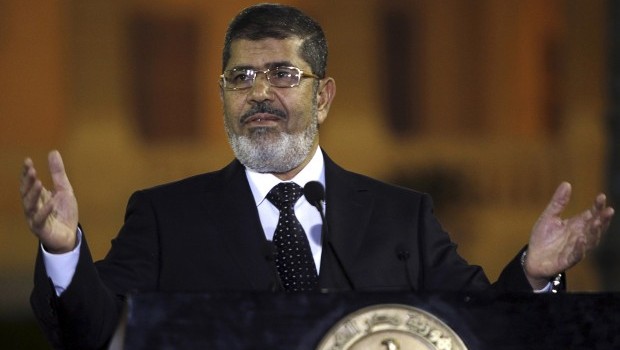The bloody events over the past three days in Egypt, coinciding with the second anniversary of the Egyptian revolution, have proven the truth behind the claim that the Islamists were wrong to rush and seize power after the elections. Shortly after the Egyptian revolution’s success in overthrowing Hosni Mubarak’s reign, any new government should have realized that the task ahead of them was a thankless one. Corrupt dictatorships are like mites that eat away very deeply into a state’s infrastructure, temporary fillers and distractions do not work; it takes decades to restore what has been destroyed.
The people, who had toiled under tyranny, oppression and theft for decades, were keen to reap the fruits of their revolution against dictatorship, expecting their new leaders to keep them safe and hunger-free. Without these two provisions there can be no stability, even if the new ruling regime is clean and pure. During the era of President Mursi, prices have risen, Egypt’s currency has fallen to record lows, the tourism industry has sunk to new depths, capital has fled abroad, the fragile security situation prevails, and the president is suffering from a lack of genuine prestige.
I realize that it is too early to judge President Mursi, and I understand that Egypt’s situation is a natural and logical outcome following any post-revolution phase, but it is not an exaggeration to say that this was always going to be a wretched period to govern, even if Egypt has the most skilled and experienced leaders who are very familiar with the origins of governance.
I have deliberately linked fragile security, rising prices and Egypt’s deteriorating currency during the era of President Mursi not because this is my personal conviction, but because this is precisely how the man on the Egyptian street thinks. He leaves the theorizing to politicians and political analysts, and is only concerned with his security, development and a loaf of bread. He will never understand why the president for justified economic reasons deliberately increased the price of essential goods, even if this was a textbook example of austerity measures, and even if the president himself had first-hand experience of life on the Egyptian street. In reality, President Mursi decided to raise prices but was then forced to retract his decision the following day.
The Muslim Brotherhood’s initial tactic was to be patient and not seek to control the majority of seats in parliament (this was the right decision before the last parliamentary elections, but then they went back on their word). Initially the Brotherhood were not even going to nominate a presidential candidate, at least in the first presidential elections. Now the microscope of the entire world is scrutinizing this first experiment in Islamic democracy in this pivotal and influential country, where any sort of failure would be catastrophic. This is precisely what the Ennahda movement in Tunisia foresaw when it formed an alliance with rival national forces, and entrusted the presidential position to Moncef Marzouki, a figure who is not affiliated to an Islamist faction. In the case of Egypt, it seems the scene has become divided between the ruling Islamists and the opposing liberals, and this division has led the country towards a dangerous political deadlock, although it is my strong belief that the liberal parties leading the opposition do not have universal respect, nor do they have the man on the Egyptian street.
When it comes to corrupt regimes, it is relatively easy to overthrow the head but it is not so easy to pull out the deep roots buried in the depths of the army, the security services, the media, the judiciary, and the economy. It would have been wiser if the Egyptian Islamists had let others perform the role of the bulldozer and receive the bruises, trauma and wounds for their efforts, knowing that later periods will be better to compete with rivals and vie for the head of state and parliamentary seats, in a more favorable climate.
Some may ask me here why I used the word ’if’ in my previous point. For example, the Brotherhood clearly appealed to the Egyptian street and were elected in fair elections. Would they have benefited from waiting any longer? The answer is yes. Syria is now on the verge of the post-Assad phase, which will be more severe and complex than the post-Mubarak period, and so the Islamists in Syria must learn the lesson of the Brotherhood in Egypt.
